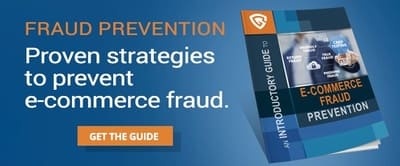Acquiring Bank and Issuing Bank - Chargebacks Explained
Table of Contents
- Other Terms to Know When Discussing Payments
- What Is an Acquiring Bank?
- What Is an Issuing Bank?
- What Do Acquiring Banks Do?
- What Do Issuing Banks Do?
- How Should Merchants Deal With Issuing Banks?
- Can the Issuing and Acquiring Bank Be the Same?
- Who Are the Largest Credit Networks?
- Is Visa an Issuer or Acquirer?
In any discussion about payments or chargebacks, you're likely to run into terms like acquiring bank, acquirer, issuing bank, or issuer. Because they're so common, most writers will assume the reader is already familiar with these terms and forego explaining them. For those who are encountering them for the first time, let's give a quick definition:
An issuing bank or issuer is the cardholder's lender or bank. It issues them a credit card and manages their account. These banks work with credit card networks to offer credit to customers.
An acquiring bank or acquirer is the merchant's bank. It accepts payments for the merchant through the payment processor and credit network and maintains the merchant account.
Many different aspects of the payment process will involve these two banks, but where they get most involved is when a chargeback occurs. Let's examine the role those two types of banks play in the dispute process and talk about how merchants should deal with issuing banks when a chargeback occurs.
To better understand the decisions these banks make and to communicate with them more effectively, it’s important to have a clear understanding of how various payment-related terms are defined. Let's go over a few of the most important ones.
Other Terms to Know When Discussing Payments
In order to talk about what these two types of banks do, there are some related terms you'll need to be familiar with:
- The merchant is the party that sold the good or service during a transaction. Merchants are associated with the acquiring bank.
- The cardholder is the individual who owns the card and, except in cases of fraud, the one who made the purchase. Cardholders are associated with the issuing bank.
- The credit card network is the institution that facilitates transactions between merchants and cardholders. The major credit card networks are Visa, Mastercard, American Express, and Discover. Discover and American Express also typically act as the issuing bank for their cards, filling both roles in the transaction process.
- The payment processor is the service that uses the payment information provided by the customer to process the transaction. Some companies fill the role of both acquiring bank and payment processor for merchants, others provide standalone services. Examples of payment processors include FIS, PayPal, and Stripe.
What Is an Acquiring Bank?
When a merchant wants to open an account with an acquiring bank, they first submit certain information proving their identity, their ownership of the business, and business records that the bank uses to determine the level of risk it believes will be associated with handling that merchant's account.
 If the bank decides to approve the merchant's application, it will draw up a contract specifying details such as fees, reserve funds, holds, etc. Depending on the bank, this contract may be standard or customized to that particular merchant.
If the bank decides to approve the merchant's application, it will draw up a contract specifying details such as fees, reserve funds, holds, etc. Depending on the bank, this contract may be standard or customized to that particular merchant.
During a chargeback, the acquiring bank acts on behalf of the merchant, though how involved they are varies significantly. Some acquirers will gather and submit evidence themselves during representment, while others simply pass on any evidence the merchant wants to put forward.
Acquiring banks also have an interest in reducing the number of chargebacks they have to deal with. They may place limits on a merchant's chargeback ratio that, if exceeded, result in consequences such as fines, increased reserve requirements, or even termination of the account.
If an acquiring bank terminates a merchant's account due to excessive chargebacks, it is required to add that merchant to the MATCH list, an industry blacklist used by banks and payment processors to avoid high-risk merchants. Merchants on the MATCH list have significant difficulties opening new accounts and face higher fees and reserve requirements.
What Is an Issuing Bank?
Most issuing banks offer regular checking and savings accounts along with credit cards, although it's not uncommon for customers to have credit cards with issuers other than the one they use for banking services.
One might expect that since acquiring banks act on behalf of the merchant during the chargeback process, issuing banks would act on behalf of the cardholder. However, their true role in the process is more akin to that of a judge or arbitrator. Issuing banks are tasked with evaluating the evidence presented by both sides and making a decision to uphold or reverse the chargeback.
Of course, the issuing bank doesn't necessarily have the final say in the matter. If the merchant feels the issuing bank has decided the case incorrectly and is willing to risk paying hundreds of dollars in fees if they lose, they can escalate the dispute to arbitration. At that point, the card network will step in, examine the evidence, and make a final decision.
What Do Acquiring Banks Do?
An acquirer is often a traditional bank that contracts with a payment processing company, but some banks offer payment processing services in-house. In addition, the term acquirer may sometimes be used to refer to the payment processor rather than the bank handling the merchant account.
Each day, the merchant’s acquiring bank exchanges funds with various issuing banks as customers make purchases, return products for refunds, or request chargebacks. The acquiring bank will then pay the merchant the net balance of their activity for the transaction period—this would be the gross sales amount minus any fees or reversals.
Merchants maintain open lines of credit with their acquiring banks to cover reversals, fees, and other charges that might push their net balance into negative territory. There is some risk to the acquirer that if a merchant becomes insolvent, they won’t be able to recover any fees or other payments from them.
Because of the financial perils posed  by merchants on the brink of insolvency, acquiring banks and the card networks they service place great importance on payment security and chargeback management.
by merchants on the brink of insolvency, acquiring banks and the card networks they service place great importance on payment security and chargeback management.
This is the reason why chargeback thresholds were established. To mitigate their own risk, the card networks started imposing fees on acquirers who retained merchants with high chargeback rates, and the acquirers pass those fees on to their merchants or simply terminate their accounts if their chargeback rates get too high.
Acquiring banks get notice of chargebacks from the issuing banks they originate with. If the acquirer cannot provide some sort of bank-to-bank resolution for the chargeback, they pass it on to the merchant, who must either accept the chargeback (the default option if no deliberate response is made) or fight it through the chargeback representment process.
When a merchant fights a chargeback, they send their evidence to their acquirer, who verifies whether the evidence meets requirements before sending it on to the issuer for a decision.
What Do Issuing Banks Do?
Issuers serve an intermediary role between their customers and the card networks, and some card networks—Discover and American Express, for instance—serve as their own issuing banks.
The issuer enters into a contract with their customer and extends them a line of credit, which the customer can then use to make purchases on credit and pay the issuer back with interest. Liability for non-payment is primarily taken on by the issuer, but card networks often have rules that require issuers and acquirers to share liability.
When a customer makes a purchase with their card, their issuing bank communicates with the merchant’s acquiring bank and transfers the funds to them. The acquirer will then place those funds in the merchant’s account, after subtracting any fees or other related charges.
Issuing banks are where chargebacks are born. When a customer believes that a charge made to their credit card was fraudulent or invalid, they contact their issuer to file a dispute, which kicks off the chargeback process.
If the issuer believes the customer has a valid basis for their dispute, they send the chargeback on to the acquirer, who notifies the merchant that they must either accept the chargeback or fight it.
If the merchant fights the chargeback, the acquirer will notify the issuer and pass along any evidence or statements supplied to them by the merchant. It is then up to the issuer to make a decision based on that evidence.
How Should Merchants Deal With Issuing Banks?
Different issuers may have different standards and preferences when it comes to rebuttal letters and supporting evidence, which can make it difficult to make sure your representment package gives you the best possible chance of winning. However, a professional chargeback management company will have extensive experience dealing with every major issuer, and can carefully craft representment packages for you to ensure you win as many disputes as possible.
FAQ
Can the Issuing and Acquiring Bank Be the Same?
Who Are the Largest Credit Networks?
Thanks for following the Chargeback Gurus blog. Feel free to submit topic suggestions, questions or requests for advice to: win@chargebackgurus.com



